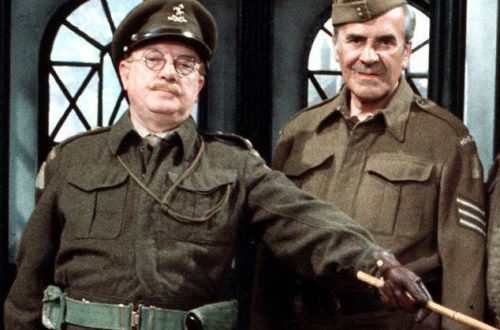While I despise those on the western left who have chosen to support the fascist contras in Iraq – I do understand why they have reached that position and how they are able to justify, to themselves at least, defending the indefensible. But there is another part of post-war opinion I struggle to understand.
Its not difficult to trace the thinking that leads, say, a member of a far-left group to the position where he is defending groups who murder trade unionists, blow up schoolkids and kidnap and then execute civilians. Most of you will know the line, if you don’t it goes like this:
1. There is much suffering in the world. Capitalism, led by American imperialism, is the main cause of that suffering. American troops in Iraq represent and act on behalf of their imperialist rulers and therefore the defeat of the Americans in Iraq would be a blow against imperialism and capitalism and a victory for those who are the victims of that global system.
2. Those who are fighting the imperialists are the resistance. Their politics and their actions are minor issues, the main thing to remember is they are fighting the imperialists. We can’t be choosy. Iraqis who in anyway assist the imperialists or oppose the resistance are traitors and collaborators and so are fair game in the anti-imperialist struggle.
As we know, those who hold such a view are in the leadership of the ‘anti-war’ movement in the UK. This view, adjusted slightly depending on the audience, is held by George Galloway, the Socialist Workers Party and several other small self-styled revolutionary groups.
The patently fascistic nature of those they choose to support does not appear to feature in their ‘analysis’ of Iraq. And, it has to be said, it is not particularly unique for the far-left to find themselves defending mass murder. You can still find people gathering in small meetings who will tell you that the death toll in Stalin’s purges has been invented by the imperialists to discredit the achievements of the great leader. In this week’s Socialist Worker you can even find a letter (sixth one down) which tries to diminish the massive loss of life caused by Mao’s rule in China.
But, of course, most people who opposed the war are not enthusiastic supporters of executions and suicide bombings. It would be a slander on the genuine pacifists and that vast splodge of mushy liberal-lefty opinion to suggest otherwise.
But what is the position of that majority of anti-war opinion who, while capable of cheering on Galloway, do not support the car bombs and the throat-slitting?
Ask them if they support the resistance and you might well get a simple ‘No’ but you could also get some sort of confused sidestep about how they “can’t blame the Iraqis” or more likely how Bush and Blair are in fact to blame for the ‘resistance’. Ask them if they want to see the democratic forces in Iraq win against the reactionaries and you might get a “of course but..” or you might get something about not being able to ‘impose democracy’ or how there is no chance of democracy emerging in Iraq. A simple ‘yes’ would be hard to find.
In other words a combination of neutrality combined with defeatism.
Take this example from the Guardian’s blog today in a piece entitled Making the connection by Mark Tran.
By intervening in Iraq (an intervention justified originally on the grounds that Iraq had weapons of mass destruction – which turned out to be non-existent) the US helped create the highly toxic conditions in which the jihadists are thriving.
…..But, as the casualty rate mounts – not just in Iraq but in Afghanistan – there will probably come a point when most Americans will think that the Iraqis need to sort out for themselves what kind of country they want.
Even if Iraq does not end up as a beacon of democracy in the Middle East as Mr Bush envisaged and becomes an authoritarian state like Iran next door, the US will have to learn to put up with it. Just as the US put up with Saddam Hussein for a long time until Mr Bush decided to overthrow him.
Defeatism (for that is what the Guardian writer engages in) I can understand, there have always been such people in wars. But the neutrality that lays behind so much of this kind of thinking genuinely puzzles me.
How can one be neutral in a struggle which pits an alliance of Jihadist fanatics and Ba’athist dead-enders against the eight million Iraqis who braved the bombers to vote for a constitutional democracy?
How can one not take sides in a struggle between those who have already shown their enthusiasm in filling mass graves and gassing women and children and those who were the survivors of such crimes? How is it possible to shrug your shoulders and then turn your back on what is nothing short of a struggle between freedom and terror?
Taking sides does not stop you from criticising your own side. It doesn’t mean you have to cheer on George W Bush’s speeches or praise Tony Blair. It doesn’t mean you have to change your mind about whether invading Iraq was a good idea or not. It simply means you know who you want to win and that the criticism you offer is aimed at increasing the chances of our side reaching victory.
Why would so many people find language such as ‘our side’ and ‘victory’ hard to speak? How can people who are, rightly, repelled by the British National Party, be neutral over fascism abroad? It really puzzles me. There is no ideology, no ‘anti-imperialism’ involved for such people. So what is it all about?


